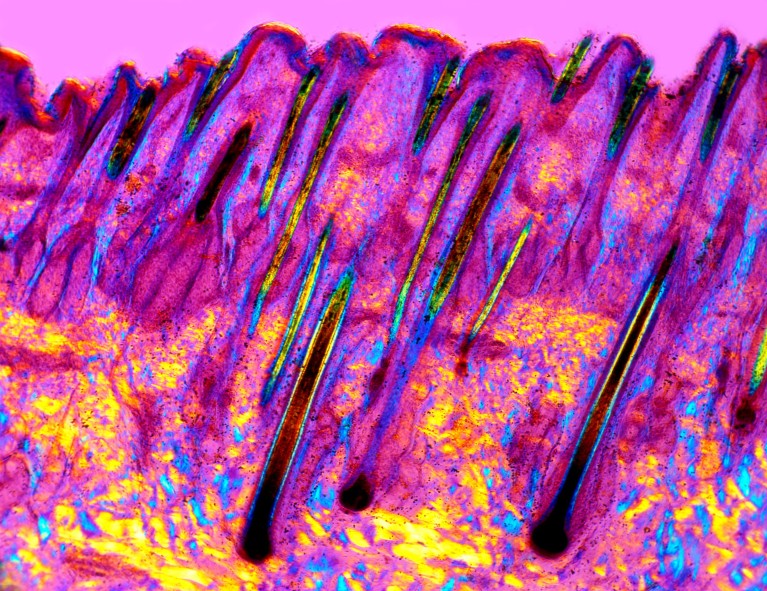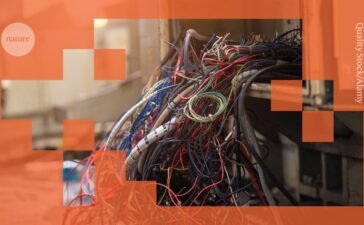
Human hairs sprout from follicles, which contain stem cells that are sensitive to dietary changes (artificially coloured).Credit: Dr Keith Wheeler/SPL
A popular weight-loss regimen stunts hair growth, data collected from mice and humans suggest1. The study’s findings show that intermittent fasting, which involves short bouts of food deprivation, triggers a stress response that can inhibit or even kill hair-follicle stem cells, which give rise to hair.
The results, published in today in Cell, suggest that although short-term fasting can provide health benefits, such as increased lifespan in mice, not all tissue and cell types benefit.
“I was shocked to hear these results,” says Ömer Yilmaz, a stem-cell biologist at the Massachusetts Institute of Technology in Cambridge who was not involved in the study. “We’ve come to expect that fasting is going to be beneficial for most, if not all cell types and good for stem cells. This is the inverse of what we expected, and the finding seems to hold true in humans.”
Deliberate deprivation
During the past decade, intermittent fasting has become one of the most popular dieting regimens; by one count, about 12% of adults in the United States practised it in 2023. One of the most common forms is time-restricted eating, which involves eating only within a limited time frame each day.
You Might Also Like
what we do and don’t know
We are 23 of the 27 original members of the Scientific Advisory Group for the Origins of Novel Pathogens (SAGO)...
Five ways increased militarization could change scientific careers
Ukrainian soldiers test drones in Donetsk, Febuary 2025.Credit: Serhii Mykhalchuk/Global Images Ukraine via GettyMilitary budgets are growing, especially in larger...
The integrated stress response promotes immune evasion through lipocalin 2
Cell linesThe KP cells used here were established previously66. Atf4 and Lcn2 knockout cell lines were generated by transient transfection...
How AI slop is causing a crisis in computer science
AI slop is flooding computer science journals and conferences.Credit: Quality Stock/AlamyFifty-four seconds. That’s how long it took Raphael Wimmer to...










